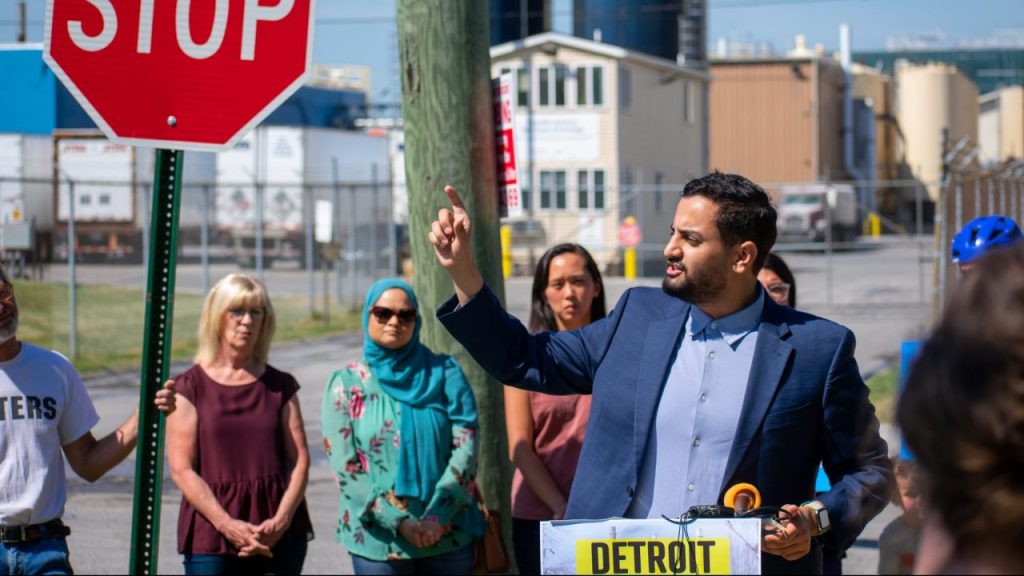Coalition seeks increased oversight at US Ecology facility: ‘We want transparency’
Activists, residents and politicians want Detroit City Council to negotiate a host community agreement in an effort to hold the operators of the U.S. Ecology facility accountable.

State Rep. Abraham Aiyash speaks to residents of Poletown East during a press conference regarding the complaints made against U.S. Ecology on Thursday, July 7 in Detroit.
Foul smells and dust are problems for the people who live near the U.S. Ecology South hazardous waste facility in Detroit near St. Aubin and I-94.
The Michigan Department of Environment, Great Lakes, and Energy is weighing whether to renew the facility’s operating permit. Activists, residents and politicians want Detroit City Council to negotiate a host community agreement in an effort to improve transparency and let people in the neighborhood have more say in the facility’s operations.
The U.S. Ecology site has been cited over a dozen times by state regulators for air quality violations since 2017.
Pamela McGhee lives nearby. Her parents bought their house in 1954.
“My family and I have been around here most of our lives and we all suffer really bad from asthma living here,” McGhee says. “We’d like to see something happen with this facility [and] to hold them accountable for this odor and dust.”
State Rep. Abraham Aiyash (D-Hamtramck) says many people in the area have asthma and there are many questions residents want answered about the plant.
“We want to know what’s been going on in this facility,” Aiyash says. “We keep seeing trucks drive in and out. Most of us have no idea what the hell those trucks are doing, so we want transparency in what is going on in a facility that is literally in some people’s backyards.”
U.S. Ecology is next door to the decommissioned trash incinerator that was finally shuttered in 2019 after years of outcry by nearby residents.
Detroit City Council could push for the contract and make it contingent on the state renewing the facility’s permit. It’s unclear if Detroit City Council would facilitate the host community agreement – or if it could even enforce the contract.
U.S. Rep. Rashida Tlaib (D-Detroit) says that oversight should come in the form of a host community agreement.
“We know that if we don’t get polluters to make promises that are legally binding contracts, they won’t deliver we’ve seen it over and over again,” Tlaib says.
Trusted, accurate, up-to-date.
WDET strives to make our journalism accessible to everyone. As a public media institution, we maintain our journalistic integrity through independent support from readers like you. If you value WDET as your source of news, music and conversation, please make a gift today.
